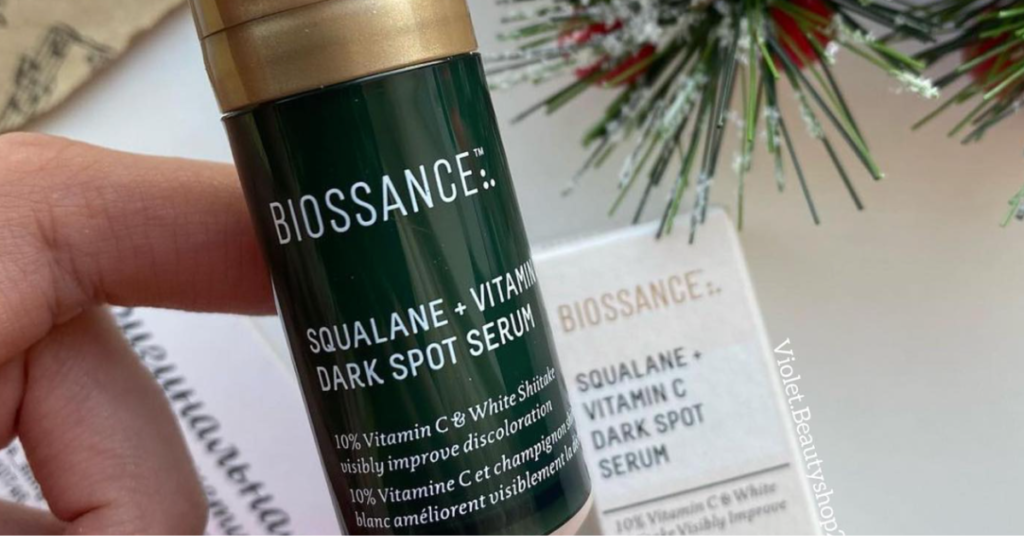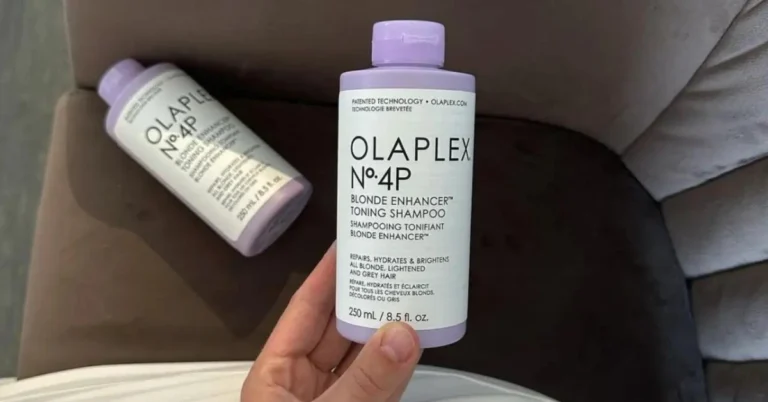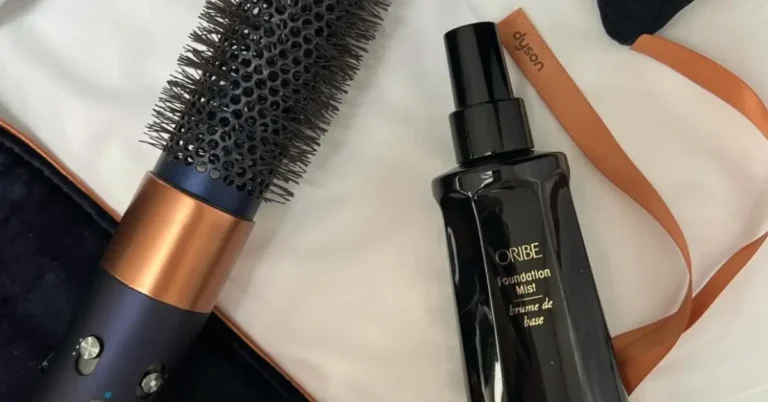Worried that your skincare regimen could be causing acne? Curious if squalane is responsible for blocked pores? Find out the truth here.
We break down what squalane is, its skin perks, and if it’s a culprit for acne. No nonsense, just facts to guide your skincare choices.
Say goodbye to guesswork and hello to clear, happy skin. Let’s dive in – your skin deserves the 411!
Table of Contents
Does Squalane Clog Pores? The Research
No, squalane does not clog pores!
Various research reports indicate that squalane is noncomedogenic, meaning it won’t clog pores. In fact, its anti-inflammatory properties can help reduce redness and swelling in acne, as noted by Cleveland Clinic.
Besides, it’s lightweight and non-greasy, which makes it a desirable ingredient in skincare products. BeautyWayMag also supports these conclusions based on their research findings.
Girls. Using Squalane on my face 2x a week after a hydrating toner has CHANGED MY LIFE.
— Åż (@azzy______) July 13, 2018
Haven't had a single patch of dry skin since, doesn't clog pores and skin glows like a flipping diamond. But I also don't recommend using everyday.
^ for dry skins
While there are numerous oils to choose from, only a few are considered noncomedogenic. So, which oils should you avoid to prevent clogging your pores?
According to dermatologists, some comedogenic oils include coconut, palm, and soybean. This information implies that not all oils are created equal, and it’s essential to choose wisely to maintain clear and healthy skin.
It’s important to remember that using noncomedogenic products like squalane doesn’t necessarily mean that your breakouts will be treated. However, these products provide reassurance that they won’t contribute to the problem, as suggested by WhoWhatWear.
What is Squalane?

Squalane is a lightweight, naturally occurring compound derived from squalene, which is a lipid found in our skin’s sebum. Squalane plays an essential role in maintaining skin hydration and keeping oil levels balanced, making it an ideal ingredient in skin care products for various skin types.
Furthermore, squalane can be obtained from plant sources such as olives, sugarcane, and amaranth seeds, making it a sustainable and cruelty-free option for those seeking eco-friendly skincare.
Its lightweight, non-greasy formula absorbs quickly into the skin, providing an array of benefits such as moisturization, protection against environmental damage, and soothing inflammation.
Why is squalane popular in the skincare industry? The answer lies in its compatibility with all skin types, including oily and acne-prone. Since it mimics our skin’s natural oils, it is less likely to cause irritation or adverse reactions, making it suitable for sensitive skin as well.
Understanding Pores and Clogging

Dead skin cells, excess oil production, and bacteria are the primary culprits behind clogged pores. When these elements build up on the skin’s surface, they can block the natural flow of oil through pores. Consequently, the trapped oil and dead skin cells lead to the formation of comedones – acne and blackheads.
Some factors that can exacerbate the issue of clogged pores include improper skincare routines, hormonal imbalances, and using products with pore-clogging ingredients. It is essential to be mindful of these factors and make necessary adjustments to minimize the risk of clogged pores.
Here is a brief table of common pore-clogging ingredients that one should avoid:
| Ingredient | Comedogenic Rating |
|---|---|
| Coconut Oil | High |
| Isopropyl Myristate | High |
| Mineral Oil | Moderate |
| Wheat Germ Oil | High |
Squalane and Its Benefits for the Skin

Did you know that squalane can help reduce redness and inflammation? Its anti-inflammatory properties work wonders in diminishing swelling and irritation commonly associated with acne and other skin conditions, such as eczema. Furthermore, squalane supports the outer skin barrier, ensuring that the skin remains moisturized and protected.
Another incredible benefit of squalane is its compatibility with other skincare ingredients like retinol. The emollient properties of squalane not only enhance the effectiveness of these active ingredients but also soothe the skin, minimizing the risk of irritation.
In addition to working well with other actives, squalane is also known to reduce the appearance of fine lines and wrinkles, providing a more youthful complexion.
Remember: While squalane is available in both plant-based and non-vegan sources, it is necessary to verify the origin of the ingredient when choosing a product, especially for those adhering to a vegan or vegetarian lifestyle
Choosing the Right Squalane Product

When selecting a squalane product for your skincare routine, it’s essential to consider a few key factors:
- Consider your skin type: Squalane is non-comedogenic, meaning it won’t clog pores and can be used by all skin types. However, those with dry, irritated, or sensitive skin may see the most significant benefits from squalane oil, while those with acne-prone or oily skin may prefer a lighter squalane option.
- Think about the desired consistency of your product: Some squalane oils can be heavier and more moisturizing, while others might be lighter and better suited for acne-prone or oily skin. It’s essential to choose a product that matches your specific skincare needs and preferences.
Considering the following tips can help in selecting the right squalane product for you:
- Read product reviews from others with a similar skin type as yours.
- Choose a brand with a good reputation and transparent ingredient lists.
- Look for products with added benefits or formulations specific to your skin concerns.
Once you’ve chosen a squalane product, it’s important to incorporate it into your skincare routine correctly. Start by cleansing your face with a gentle cleanser before applying squalane oil, as natural skin oils, dead skin cells, and bacteria can clog pores.
How To Use Squalane Correctly
When using squalane you have to follow these 5 rules:
- Patch Test: Test on a small area first to check for any adverse reactions.
- Start Slow: Begin with a low concentration and gradually increase usage.
- Layering Order: Apply after cleansing and toning, before heavier products.
- Customize Usage: Use alone or mix with other skincare products as needed.
- Store Properly: Keep away from sunlight and extreme temperatures to maintain freshness.
Expert Opinion: Does Squalane Clog Pores?

When delving into the question of whether squalane clogs pores, I wanted to go beyond the buzz and truly understand the science behind it.
To shed light on this topic, I reached out to skincare experts, dermatologists, and professionals in the field. Here’s what I’ve gathered from their insights:
1. Dermatologists’ Perspective: Dermatologists generally agree that squalane, when sourced and used correctly, is non-comedogenic. It means that squalane oil, unlike some other oils, has a low likelihood of clogging pores, making it suitable for various skin types.
2. Skincare Experts’ Insights: Skincare experts emphasize the importance of selecting high-quality squalane products from reputable brands. The purity and formulation of squalane in skincare products play a significant role in whether it will clog pores.
3. Scientific Studies: Research in this area supports the idea that squalane is unlikely to clog pores. Its molecular structure is similar to the skin’s natural sebum, making it a lightweight and non-greasy option for moisturizing.
Pro Tip: To ensure squalane doesn’t clog your pores, patch testing is crucial. Apply a small amount of the product to a discrete area of your skin and monitor for any adverse reactions before incorporating it into your regular skincare routine.
Does Squalane Clog Pores? A Recap

FAQ:
The question of whether squalane clogs pores can be addressed by looking at its source. Plant-derived squalane, such as that from olives or sugar cane, is less likely to cause breakouts or clog pores compared to its shark liver oil-derived counterpart.
One reason for this is that squalane closely resembles our skin’s natural oils, making it easily absorbed and non-comedogenic. Those struggling with acne-prone skin may find that incorporating squalane oil into their routines can help balance oil production and prevent further breakouts.
Remember, just like any other skincare product, individual experiences may vary. It is essential to listen to your skin and adjust your skincare routine accordingly. Squalane, when appropriately used and sourced, can certainly be a beneficial addition to many people’s skincare regimens.
Will squalane cause breakouts?
Squalane oil is safe for acne-prone skin and can even help prevent breakouts by regulating sebum production and reducing inflammation. However, it is essential to choose skincare products that are non-comedogenic and do not contain other ingredients that can clog pores.
Does squalane help clogged pores?
Yes, squalane can help unclog pores by regulating sebum production, reducing inflammation, and providing hydration to the skin. However, it is important to ensure that the squalane product used is non-comedogenic and does not contain other pore-clogging ingredients.
Is squalane okay for acne?
Yes, squalane is safe for acne-prone skin and can even help prevent breakouts by regulating sebum production and reducing inflammation. It is recommended to choose skincare products that are non-comedogenic and do not contain other ingredients that can clog pores.
Is squalene a pore clogging ingredient?
Squalene is not inherently pore-clogging, but its hydrogenated form, squalane, is considered non-comedogenic and is a better option for acne-prone skin. However, it is still important to check the other ingredients in a skincare product to ensure it is non-comedogenic.
Is squalene comedogenic?
Squalene is not inherently comedogenic, but it can become comedogenic if it oxidizes or is combined with other pore-clogging ingredients. Its hydrogenated form, squalane, is considered non-comedogenic and a better option for acne-prone skin.
Is it okay to use squalane everyday?
Yes, plant-based squalane is safe to use daily, morning and night, and is recommended for all skin types. It is a lightweight, non-greasy, and fast-absorbing oil that can improve skin hydration, texture, and overall appearance.
Is squalane or hyaluronic acid better for acne?
Hyaluronic acid is better for hydrating oily or acne-prone skin because it is light and brings water to the skin’s surface without clogging pores. Squalane is a very effective ingredient for moisturizing dry skin, but it can also be used in formulations that will not exacerbate acne.
What is the best oil to unclog pores?
Jojoba oil is one of the best oils to unclog pores because it is similar in structure to our skin’s natural sebum, making it less likely to clog pores. Other oils that are non-comedogenic and effective for unclogging pores include tea tree oil, rosehip oil, and argan oil.
Which Ordinary product is best for clogged pores?
The Ordinary Salicylic Acid 2% Masque is a popular product for clogged pores. It contains 2% salicylic acid, which exfoliates the skin, unclogs pores, and reduces inflammation. It is recommended to use it once or twice a week to avoid over-exfoliating the skin.
Which serum reduce clogged pores?
Serums containing salicylic acid, glycolic acid, or retinol can help reduce clogged pores by exfoliating the skin and promoting cell turnover. Some recommended serums for clogged pores include The Ordinary Salicylic Acid 2% Solution, Paula’s Choice Skin Perfecting 2% BHA Liquid Exfoliant, and Sunday Riley Good Genes All-In-One Lactic Acid Treatment.
Should I use squalane if I have oily skin?
Yes, squalane is a lightweight and non-greasy oil that is safe for all skin types, including oily skin. It can help regulate sebum production, reduce inflammation, and provide hydration to the skin without clogging pores.
Does squalane dry out your face?
No, squalane is a highly moisturizing oil that can help hydrate and nourish the skin without leaving a greasy or heavy feeling. It can actually help prevent moisture loss and improve skin texture and overall appearance.
Is squalane better than hyaluronic acid?
Squalane and hyaluronic acid serve different purposes in skincare, so it is not a matter of one being better than the other. Hyaluronic acid is great for hydrating the skin’s surface, while squalane helps to lock in moisture and improve skin texture. They can be used together for optimal results.
If you liked this blog article about the question: Does Squalane Clog Pores? don’t forget to leave us a comment down below to tell us about your experience.





